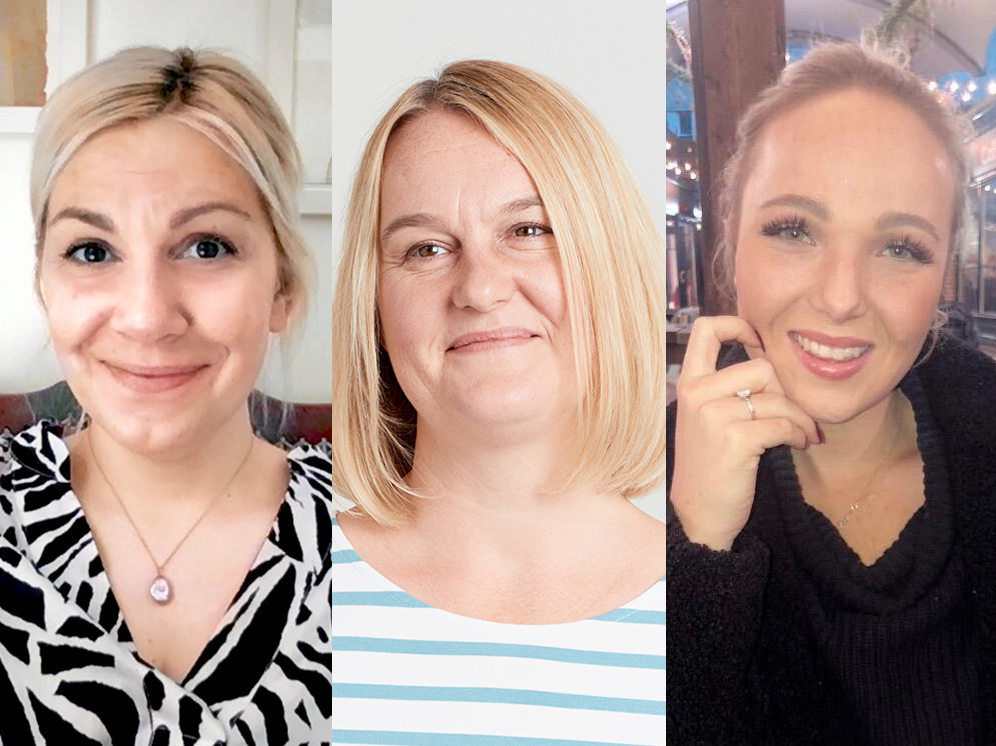Neurodiversity at work
People have always been at the heart of Incite. As a human-centric consultancy, our focus is to ensure we treat all our current and prospective employees fairly and equitably by building a team culture and space that is inclusive to all.
To hold ourselves accountable, each month we’re raising awareness and encouraging discussions around a different topic within the diversity, equity, and inclusion space. This month we’re exploring neurodiversity.
A relatively new term, neurodivergent simply means someone who thinks differently from the way the majority – referred to as neurotypical – expect. This includes ADHD (5% of the population), Autism (1-2%), Dyslexia (10%), Mental Health needs (7%), and Fibromyalgia.
Neurodiversity can be a competitive advantage when people are in the right environment; making use of their strengths, rather than battling to overcome the challenges it presents.
There are clear benefits to having employees who think differently. Positive attributes commonly associated with neurodivergent employees include creativity and innovation, lateral thinking, strategic analysis, and the development of highly specialised skills.
To bring this to life, we spoke with three of our team to hear their personal accounts of being neurodivergent, including insights into finding what works for them.
Kate Baker, People Experience Manager
“I spent most of my life highly anxious. Feeling constantly on edge, seeking reassurance, catastrophising situations, spending hours reliving everything I had ever said, the list goes on. This caused me to feel physically ill and held me back in many ways. I thought that was just life, it didn’t occur to me that things could be different, so I’d kept all of these feelings bottled up.
A few years ago, the situation came to a head, and I was diagnosed with Generalised Anxiety Disorder (GAD). It was a tough time for me. I had a lot of imposter syndrome; like I didn’t deserve the label of GAD or warrant the help.
With therapy (mainly Cognitive Behavioural Therapy) and other interventions, I was able to start living differently. It’s no understatement to say that it changed my life. My reactions are now much more proportional; I’m able to rationalise and use the smart part of my brain to interrogate the anxious part.
Here are some of the tips and truths that I have learnt:
- When I have a negative automatic thought, I ask myself ‘Where’s the evidence for that thought? Would it stand up in court?’ – it often wouldn’t
- When I say something mean to myself, I question ‘Would I say that to my (hypothetical) daughter?’ – no, I am not cruel to others, so why am I cruel to myself?
- Writing worries down gets them out of my head and provides some respite
- Breathing exercises really help – the Calm Breathe Bubble is a favourite of mine
- It’s ok to say you are overwhelmed and that you need some downtime – this is self-care
- It’s ok to switch off from being contactable – you don’t have to be always available in case of an anticipated, hypothetical emergency
- Social media is not always your friend – coming off Instagram and Facebook was a huge relief – comparison really is the thief of joy
I will always have anxiety. Some days I am overwhelmed and oversaturated, but I can manage it now, and most people wouldn’t realise that I had it.
There are positives, too. I am highly empathetic because I’m so attuned to feelings and emotions. This helps me to be more effective in a people-facing role. For example, earlier this year, I wrote and delivered workshops on dealing with grief, having bereavement conversations, and building resilience. These were successful, positive experiences because I was able to ‘read the room’ and tailor my tone, delivery and engagement style accordingly.
Many people experience anxiety in a fleeting, temporary, or situational way. It is a normal reaction to stress and can be beneficial – it alerts us to danger and helps us to prepare and pay attention. But when it tips over into all-consuming anxiety, it’s time to reach out and talk to someone.
There are lots of resources available: Mental Health First Aiders, anxiety charities, free support lines, online forums, and the NHS website. And if you’re not sure whether someone else is ‘ok’, it’s worth asking, and sometimes, asking twice.”

Verity Game, Commercial Team Coordinator
“When I was diagnosed with dyslexia and dyspraxia whilst doing my Law degree, things I had previously justified as being normal or part of my ‘ditsy’ personality finally made sense. Contrary to widespread belief, having a learning disorder does not impact intelligence. It simply means we process and recall information in a unique way.
Over the years I’ve adopted several strategies that have helped me. Prioritising self-awareness and transparency have been invaluable; if I don’t understand my own learning and developmental needs, how are others around me supposed to provide support? Being honest with friends and work colleagues about my learning disorder has enabled them to adjust teaching techniques and provided me with the confidence to ask for help. Other ways I manage my symptoms are by using therapy putty, structuring my day, and remaining highly organised through lists, reminders, and other tools.”
Suzie Curtis, Senior Field Manager
“Coping with being dyslexic has meant learning to give myself a break. I left the words ‘normal’ and ‘perfect’ behind a long time ago. We’re all human, we make mistakes. It’s about learning from them.
I manage the way I work by liking what I do. Project management suits my speedy brain; I enjoy juggling many things, working on costs, dealing with suppliers, problems with recruitment, etc. It challenges me to not drop the ball.
My spelling is consistently inconsistent, but I work with the world as my brain sees it and I don’t get annoyed at myself. Here are some tips and tricks that work for me:
- My computer now knows the way I spell and helps me with spell check, I also use google if I’m struggling with some of the healthcare terminologies
- I use colours to help my brain organise the communication pathway, which makes it easier to absorb information
- I have conversations with people if I need to clarify information to check I haven’t missed anything
- I write notes, however scrappy – I understand them
- I write slack messages in an email to remove the panic of making a mistake
- I challenge myself to speak out more and not be so nervous on zoom calls and presenting
My older self is in a better position than my younger self. I’ve learnt to stand taller and value myself more over time.
You can also help me with humour, some of my mistakes are really funny.”
Learn more about our people here.




